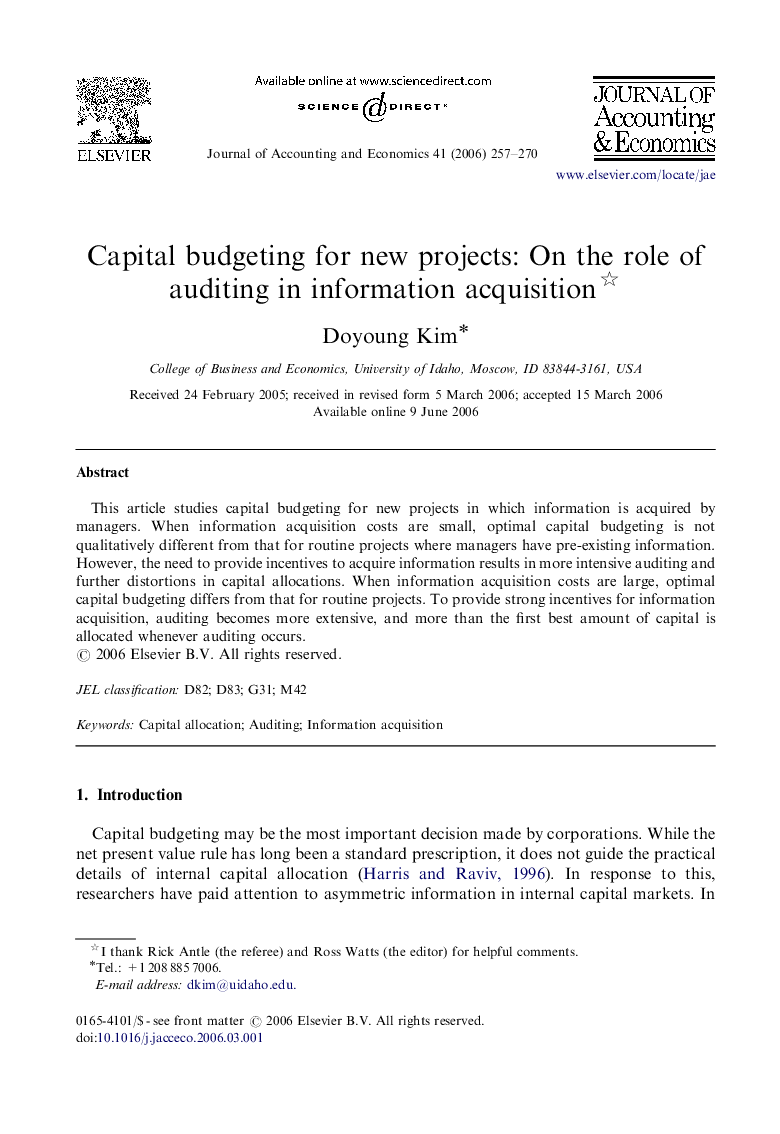| Article ID | Journal | Published Year | Pages | File Type |
|---|---|---|---|---|
| 5087111 | Journal of Accounting and Economics | 2006 | 14 Pages |
Abstract
This article studies capital budgeting for new projects in which information is acquired by managers. When information acquisition costs are small, optimal capital budgeting is not qualitatively different from that for routine projects where managers have pre-existing information. However, the need to provide incentives to acquire information results in more intensive auditing and further distortions in capital allocations. When information acquisition costs are large, optimal capital budgeting differs from that for routine projects. To provide strong incentives for information acquisition, auditing becomes more extensive, and more than the first best amount of capital is allocated whenever auditing occurs.
Related Topics
Social Sciences and Humanities
Business, Management and Accounting
Accounting
Authors
Doyoung Kim,
